On Episode #178 of the PricePlow Podcast, Ben and guest co-host Joey Savage take listeners inside Veritacor Manufacturing in Luling, Texas, for an exclusive facility tour and in-depth conversation with founders Frank Santos and Derek Curtiss. This episode provides a rare behind-the-scenes look at what it takes to build and operate an NSF-certified, GMP-compliant supplement manufacturing facility from the ground up.
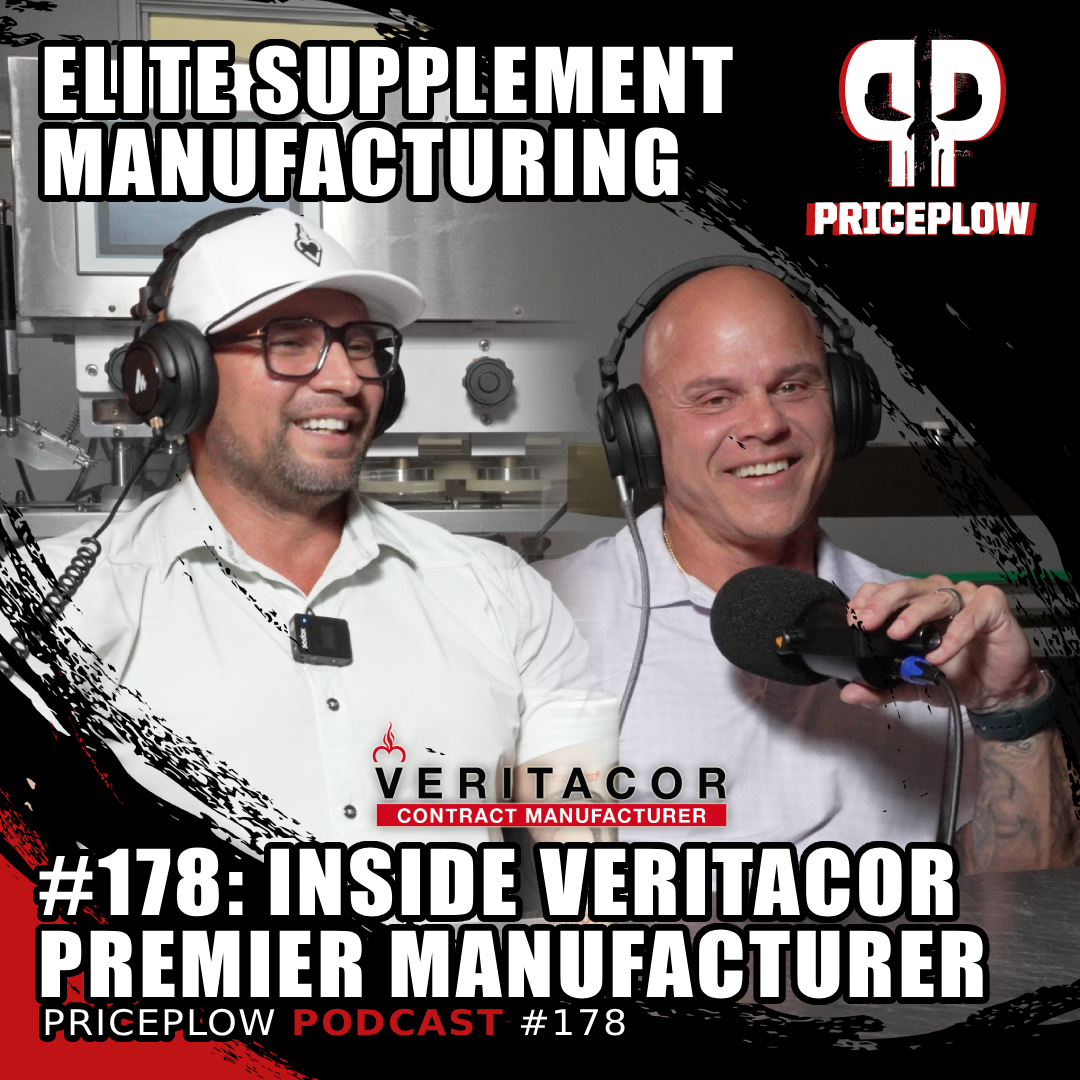
Inside Veritacor Manufacturing: Frank Santos and Derek Curtiss showcase their NSF-certified, GMP-compliant facility and discuss the meticulous processes behind modern supplement manufacturing on Episode #178 of the PricePlow Podcast
From their humble beginnings with a single encapsulator to their current 32,500 square foot operation, Frank and Derek share the meticulous processes, quality control systems, and attention to detail that set Veritacor apart in the competitive contract manufacturing landscape. The discussion dives deep into the technical aspects of supplement production, from vendor qualification and raw material testing to the critical differences between ribbon and paddle blenders, while also exploring their ambitious growth plans to reach 200,000 square feet of manufacturing space.
This discussion and forthcoming facility tour showcases not just Veritacor's impressive capabilities in powder blending, encapsulation, and fulfillment, but also their commitment to elevating industry standards through rigorous third-party auditing, comprehensive SOPs, and a culture of continuous improvement. Whether you're a brand owner looking for a manufacturing partner or simply interested in understanding how supplements are made at the highest quality levels, this episode delivers unprecedented insights into modern nutraceutical manufacturing.
Subscribe to the PricePlow Podcast to hear more conversations with industry innovators and manufacturers shaping the future of supplements!
Subscribe to the PricePlow Podcast on Your Favorite Service (RSS)
https://blog.priceplow.com/podcast/veritacor-supplement-manufacturing-178
Video: Inside Veritacor Manufacturing Facility Tour
Podcast: Play in new window | Download (Duration: 1:15:27 — 82.1MB)
Detailed Show Notes: GMP Excellence and Manufacturing Innovation
-
0:00 - Introduction: A Dream Realized in Manufacturing
Ben opens Episode #178 from inside Veritacor Manufacturing in Luling, Texas, fulfilling a long-held dream of podcasting from within an actual manufacturing facility. Joining him is guest co-host Joey Savage, who brings his own manufacturing expertise to the conversation. The hosts introduce Frank Santos and Derek Curtiss, the founders of Veritacor, setting the stage for an in-depth exploration of their facility and operations.
Ben emphasizes his passion for manufacturing conversations, noting how discussions with manufacturers reveal the "trials and tribulations" of creating products that brand conversations often miss. He references earlier discussions about technical challenges like an auger that couldn't move certain powders -- the type of granular problem-solving that fascinates him about the manufacturing process. This blue-collar aspect of "doing the work" and solving real production challenges represents what makes manufacturing conversations uniquely valuable.
The introduction establishes that this facility tour represents part of multiple days of filming at Veritacor, with more technical content on formulation, flavoring, and production techniques to come in future releases. The team has been documenting Veritacor's comprehensive approach to supplement manufacturing, from raw material sourcing through finished product fulfillment, providing unprecedented access to their operations.
-
1:30 - Derek's Journey: From Indian Botanicals to COO
Derek shares his unconventional entry into the supplement industry, beginning in the early 2000s when a friend pitched him on a business idea: importing botanicals from India, bagging them, and selling them online. This entrepreneurial start gave him early exposure to the complexities of international sourcing, quality control, and supplement distribution that would prove invaluable in his later career.
His journey through various industry roles provided comprehensive experience across the supplement supply chain, from sourcing raw materials to understanding retail dynamics. This diverse background ultimately led him to partner with Frank in building Veritacor, bringing operational expertise that complements Frank's business vision and family connections.
The conversation reveals how both founders bring over 50 years of combined industry experience to Veritacor, yet they emphasize their commitment to continuous learning and improvement. Their complementary skill sets (Derek's operational and sourcing expertise paired with Frank's business acumen and strategic vision) create a strong foundation for the company's growth.
-
3:30 - Building from Scratch: The Veritacor Origin Story
Frank and Derek detail Veritacor's ambitious beginnings, choosing to build a fully compliant facility from scratch rather than acquiring and retrofitting existing operations. This decision, while requiring substantial upfront investment, allowed them to design systems and processes according to current best practices without inheriting legacy problems, outdated equipment, or ingrained bad habits.
Frank shares the unique pressure of operating as a family-owned business where the investors are literally family members. He describes feeling the weight of responsibility: "man, they've invested in us... it's like the ultimate, we gotta do this." This dynamic creates both additional motivation to succeed and a support structure that enables long-term thinking rather than short-term profit maximization.
The founders joke about their original business plan, which called for just an encapsulator and maybe "an upgraded capsule counter" for bottling. When encouraged to "think bigger", they initially balked at the potential costs, but ultimately embraced a vision that would position them as a premier contract manufacturer. This evolution from modest goals to ambitious vision demonstrates their adaptability and growth mindset.
-
6:00 - The Path to NSF Certification: Setting the Standard
Frank explains that Veritacor pursued NSF certification immediately upon opening, setting them apart from many manufacturers who operate for years before seeking third-party validation. This decision reflected their commitment to establishing credibility and maintaining the highest standards from day one, even though it meant higher initial costs and more complex startup procedures.
The NSF audit process involves a week-long, comprehensive examination of every aspect of their operation. Auditors scrutinize everything from ingredient ordering and sampling protocols to cleaning procedures and documentation systems. Frank emphasizes that NSF doesn't just verify compliance with FDA regulations (CFR - Code of Federal Regulations), they push manufacturers to exceed government requirements and implement industry best practices.
Derek adds valuable context about NSF's position as one of the most stringent certifying bodies in the industry, alongside UL. These organizations actively push manufacturers to improve year over year, adding new requirements based on evolving best practices and emerging safety concerns. This continuous improvement mandate aligns perfectly with Veritacor's philosophy of getting "1% better every single day".
-
8:15 - Customer Onboarding: From Formula to Feasibility
When a potential client approaches Veritacor with a product idea, Derek walks through their systematic onboarding process that begins with frank discussions about formula feasibility. The first step involves determining whether the client's vision can actually be manufactured -- a crucial reality check that saves time and money for both parties.
Common challenges include unrealistic expectations about capsule capacity (clients wanting to fit four grams of material into two capsules), ingredients that cause manufacturing problems (like glycerol's clumping issues), or compounds so bitter that no amount of flavoring can mask them. Their experience allows them to guide clients toward formulations that will actually work in production while maintaining intended benefits and consumer appeal.
Once a formula is validated and refined through this consultative process, Veritacor creates detailed specifications, develops rough supplement facts panels, and provides comprehensive quotes. Upon quote approval and down payment receipt, the complex process of material sourcing begins, triggering their extensive vendor qualification protocols that ensure quality from the very beginning of production.
-
10:15 - Vendor Qualification: The Foundation of Quality
The vendor qualification process represents a critical but often invisible quality control point. Veritacor maintains a carefully curated approved vendor list, with each supplier undergoing rigorous validation before being authorized to provide materials. This process differs significantly between domestic and foreign suppliers, with international sourcing adding layers of complexity including additional documentation requirements and verification procedures.
Frank explains that qualifying a vendor involves extensive questionnaires about their facilities, processes, and quality systems. But paperwork is just the beginning. Veritacor independently tests all materials to verify that vendors' Certificates of Analysis (COAs) match reality. This testing covers potency, purity, microbial contamination, heavy metals, and even basic characteristics like crystal structure, color, and particle size.
The discussion reveals their "trust but verify" philosophy: every incoming material gets tested regardless of vendor reputation or history. This approach has occasionally uncovered significant discrepancies between vendor COAs and actual material properties, validating their comprehensive testing protocols and protecting both Veritacor and their clients from quality issues that could damage brands and consumer trust.
-
12:15 - The Critical Weighing and Blending Process
Derek emphasizes that weighing and blending represent the most critical manufacturing steps where "things can actually go bad" and entire batches can be ruined. Their two-person verification system requires one person to pull and weigh materials while another independently checks weights and signs off on accuracy. This redundancy might seem excessive but prevents costly errors that could destroy thousands of dollars worth of product.
The complexity multiplies exponentially when dealing with formulas containing both large-dose ingredients (like 5 grams of creatine monohydrate) and tiny amounts (like 20mg of PQQ). These disparate quantities require sophisticated blending strategies, including pre-blends where small ingredients are first mixed with excipients to create larger, more manageable volumes that can be uniformly distributed throughout the final product.
Frank provides a specific example from their Core Culture brand, where achieving homogeneous distribution of 20mg of PQQ within 5 grams of creatine requires careful process planning and multiple blending stages. The team must work backwards from target specifications, determining blend times, equipment selection, and staging strategies to ensure finished products consistently meet label claims across every serving.
-
14:30 - Blending Technology Deep Dive: Ribbon vs. Paddle vs. Bin
The conversation explores the technical nuances of different blending technologies, revealing why Veritacor maintains three distinct systems. Their equipment includes bin blenders (500L and 1000L capacity), ribbon blenders for high-volume production, and paddle blenders for specialized applications. Each serves specific purposes based on ingredient characteristics, batch size, and product requirements.
Ribbon blenders utilize high-shear mixing with ribbons moving material in opposite directions, creating aggressive mixing action excellent for breaking up clumpy materials like beta-alanine or caffeine. However, this violent action can damage sensitive ingredients or inclusions like cookie bits, and the shearing forces generate heat that can affect temperature-sensitive compounds or cause gumming in certain ingredients.
In contrast, paddle blenders provide gentle, low-shear mixing through a scooping motion that preserves ingredient integrity. While slower than ribbon blending, paddle systems excel with products containing inclusions or heat-sensitive materials. Bin blenders, which simply rotate to tumble ingredients, work best for smaller batches requiring extremely uniform distribution without any shearing action... though they must be kept between 40-70% full for optimal mixing efficiency.
-
17:15 - Quality Control: Multi-Point Testing and Validation
Quality control at Veritacor extends far beyond basic endpoint testing. The team pulls samples from multiple points within each blend (beginning, middle, and end of production runs) to create composite samples for laboratory analysis. This comprehensive sampling ensures homogeneous distribution throughout the entire batch, not just in isolated areas that might not represent the whole.
Derek explains how they've developed expertise over years of production, learning optimal blending times for different formulation types. They've discovered that over-blending can actually cause ingredient segregation as particles of different densities separate, while under-blending leaves hot spots of concentrated ingredients. Finding the sweet spot requires both scientific testing and practical experience accumulated over thousands of batches.
Throughout the facility tour, Ben and Joey observed blue drums containing "in-process" samples awaiting analysis before proceeding to the next production stage. This systematic approach means potential issues are caught early in the process rather than discovering problems in finished products, saving time, money, and protecting brand reputations.
-
19:45 - Manufacturing Capabilities and Core Specializations
Veritacor has developed particular expertise in several key product categories: proteins (including various forms and flavors), electrolyte formulations, creatine products, BCAAs and amino acid blends, and encapsulated products. Their equipment and accumulated knowledge allow them to handle both small specialized runs and large-volume production, though they prefer working with brands positioned for growth.
This preference for scalable partnerships stems from the significant fixed costs associated with their quality control protocols. Whether producing 100 units or 10,000, certain costs remain constant: cleaning, line setup, testing, documentation. By focusing on growth-oriented brands, they can maintain competitive pricing while never compromising on quality standards.
The facility's current 32,500 square feet encompasses multiple specialized buildings, each serving specific functions in the production flow. Temperature and humidity-controlled ingredient storage features spray foam insulation and custom HVAC systems specifically designed to maintain ingredient integrity in challenging Texas weather conditions.
-
22:30 - Core Culture: Demonstrating Capabilities Through House Brands
The team introduces Core Culture, Veritacor's in-house brand that serves multiple strategic purposes beyond revenue generation. The brand philosophy centers on inclusivity -- "you, me, we are Core Culture" -- making fitness and wellness accessible to everyone regardless of their current fitness level or experience with supplements.
Their product line demonstrates sophisticated formulation capabilities, such as their mushroom cognitive support product featuring lion's mane and cordyceps for the growing functional mushroom market. The packaging design prioritizes aesthetic appeal that looks good on kitchen counters, recognizing that modern consumers want supplements that reflect their lifestyle choices rather than hiding them in cabinets.
Core Culture serves as a living laboratory for testing new formulations, packaging innovations, and market trends. When potential clients see the quality and attention to detail in Veritacor's own products, it builds confidence in their contract manufacturing services. The brand also provides real-world production experience that helps them better understand and serve client needs.
-
25:00 - Facility Evolution: Creative Solutions and Strategic Growth
Frank recounts Veritacor's remarkable growth trajectory, starting with just 7,000 square feet and a mere 800 square feet of warehouse space. As demand quickly outpaced capacity, they employed creative solutions including converted shipping containers for storage. These weren't just standard containers -- they custom-modified them with spray foam insulation and HVAC systems to maintain ingredient quality in Texas's challenging climate.
The phased expansion approach allowed sustainable growth without overextending resources. The second building added 12,000 square feet of state-of-the-art ingredient storage, incorporating lessons learned from the shipping container experience. The third phase brought total capacity to 32,500 square feet, with each expansion improving workflow efficiency and production capacity.
Looking forward, their vision for 200,000 square feet isn't just about space, it's about capability enhancement. Detailed plans specify equipment additions, software implementations, and team development strategies at each growth milestone. This methodical approach ensures they maintain quality standards while scaling to serve larger, more demanding clients.
-
28:00 - NSF Audit Stories: Learning from Scrutiny
The team shares candid stories about NSF audit experiences, including unexpected findings that drove improvement. One memorable example involved razor blade accountability -- auditors identified that without a sign-out system for razor blades used in production, there was potential for contamination if a blade went missing. While no blade had ever been lost, the theoretical risk required action.
Rather than viewing such findings as failures, Veritacor embraces them as improvement opportunities. They immediately developed standard operating procedures (SOPs) for razor blade control, implementing sign-out/sign-in protocols that eliminate even theoretical contamination risks. This responsiveness to audit findings demonstrates their commitment to continuous improvement.
Frank emphasizes that comprehensive audits examine surprisingly granular details -- pest control logs with numbered bait stations, bathroom cleaning schedules, chemical storage procedures. While these might seem excessive to outsiders, they reflect the systematic approach necessary for true quality assurance where nothing is left to chance or assumption.
-
31:00 - Stability Testing and Shelf Life Determination
The discussion explores the complex science behind expiration dating, revealing that most brands simply default to two-year dates without supporting data. Proper shelf life determination requires extensive stability testing in controlled chambers that simulate accelerated aging through specific temperature and humidity conditions.
Derek explains that 90-180 days of accelerated stability testing can project shelf life out to two years with scientific confidence. However, this testing costs thousands of dollars per product, leading many brands to skip it entirely. Ironically, most products do maintain potency well beyond stated expiration dates -- the date simply guarantees label claims will be met until that point.
Beyond chemical stability, testing evaluates organoleptic properties like taste, smell, appearance, and texture. Whey protein, for example, might develop a "sour milk funk" over time while still meeting protein content claims. These sensory factors, not just potency maintenance, determine appropriate expiration dating that ensures positive consumer experiences.
-
34:00 - Third-Party Logistics: Complete Supply Chain Solutions
Veritacor's third-party logistics (3PL) services allow brands to operate without ever touching physical product. From initial manufacturing through final delivery to Amazon FBA, TikTok Shop, or direct-to-consumer Shopify orders, they handle every aspect of the supply chain. This comprehensive service particularly appeals to influencer-driven brands focusing on marketing rather than operations.
Frank describes how this capability evolved organically from client requests to consolidate operations under one roof. By managing fulfillment, Veritacor maintains quality control through the entire product lifecycle while providing brands with real-time inventory visibility through their NetSuite system implementation.
The 3PL service has become increasingly critical as social media personalities launch supplement brands. These digital-native entrepreneurs often lack both the expertise and desire to handle physical logistics, making Veritacor's turnkey solution invaluable for rapid scaling while maintaining professional fulfillment standards.
-
36:30 - NetSuite Implementation: Digital Transformation
Seven months prior to filming, Veritacor implemented NetSuite to revolutionize their operations and client transparency. The enterprise resource planning system enables sophisticated inventory management, automated reorder alerts, and predictive forecasting based on historical sales patterns. This digital transformation helps brands avoid costly stockouts while optimizing working capital.
The software integration extends far beyond basic inventory tracking. Clients receive proactive alerts when approaching reorder points, with the system calculating lead times and recommending optimal order quantities. This data-driven approach prevents panic ordering and emergency air freight while helping smaller brands manage cash flow effectively.
Frank notes that NetSuite's analytics often identify patterns that brands miss in their own data. By aggregating information across all client accounts, Veritacor can provide insights about seasonal trends, growth trajectories, and inventory optimization that help brands make better strategic decisions.
-
39:00 - Community Impact: Building Local Talent
An often-overlooked aspect of Veritacor's operation is their commitment to Luling's local community development. They primarily hire locals with no supplement industry experience, training them from scratch in complex GMP manufacturing processes. This approach builds loyal, dedicated teams while providing valuable career opportunities in a small Texas town.
Joey observes that this local hiring strategy helps maintain Veritacor's strong culture and exceptional standards. By training people without preconceived notions or bad habits from other facilities, they ensure consistent adherence to their quality protocols. The geographic isolation from major supplement industry hubs also insulates them from the "bro culture" that can compromise standards elsewhere.
The investment in workforce development extends beyond basic job training. Employees learn FDA regulations, NSF requirements, and sophisticated manufacturing processes, which are transferable skills that can advance careers. This commitment to employee development creates the passionate, detail-oriented culture necessary for maintaining exceptional quality standards day after day.
-
42:00 - The Business of Manufacturing: Costs and Timelines
The conversation turns to practical business considerations, addressing why Veritacor prefers working with scalable brands. Frank explains that certain costs remain fixed regardless of batch size: cleaning and sanitizing equipment, line setup, documentation, quality testing. These fixed costs mean small runs carry disproportionately high per-unit costs that can make products uncompetitive.
Derek adds that timeline management represents another crucial consideration. Despite what clients might promise their customers about launch dates, manufacturing follows rigid processes that cannot be rushed without compromising quality. Raw material procurement, testing, blending, packaging, and final testing all require specific timeframes that don't care about marketing deadlines.
The team emphasizes that once materials enter production, brands lose control over timing. Variables like port delays, testing failures, or equipment maintenance can impact schedules. The safest approach involves having finished product in hand before announcing launch dates, though this requires working capital that many startups lack.
-
45:00 - Blender Selection Strategy: The Right Tool for Each Job
Returning to technical details, the team elaborates on how they determine which blending equipment to use for specific products. The decision matrix considers ingredient characteristics, batch size, inclusion requirements, and heat sensitivity. Having multiple blender types provides flexibility to optimize for quality rather than forcing all products through the same equipment.
For example, a protein powder with chocolate chips requires paddle blending to preserve inclusion integrity, while a pre-workout with clumpy beta-alanine benefits from ribbon blending's aggressive mixing action. Bin blenders excel for small batches of expensive ingredients where absolute uniformity matters more than production speed.
This equipment diversity represents significant capital investment but enables Veritacor to handle diverse product types without compromise. Many contract manufacturers force all products through limited equipment options, potentially compromising quality or efficiency. Veritacor's approach ensures each product receives optimal processing.
-
48:00 - Expansion Vision: The Path to 200,000 Square Feet
Frank shares detailed vision for reaching 200,000 square feet of manufacturing space, emphasizing this isn't just about physical expansion but capability enhancement. Each growth phase includes specific plans for equipment additions, technology upgrades, and team development to maintain quality while increasing capacity.
The expansion strategy follows a methodical approach learned from their journey so far. Rather than massive leaps that strain resources and systems, they plan incremental growth that allows proper integration of new capabilities. This might mean adding tablet pressing, exploring gummy manufacturing, or implementing advanced automation -- each carefully evaluated for strategic fit.
Their experience with shipping containers taught valuable lessons about creative problem-solving during growth phases. While they won't return to container storage, that resourcefulness and adaptability remains core to their expansion philosophy. They'll continue finding innovative solutions to challenges while never compromising the quality standards that define their reputation.
-
51:00 - Product Categories and Specialization
The discussion delves deeper into Veritacor's product specializations. Proteins represent a major focus area, with expertise in various forms including whey isolate, concentrate, plant-based options, and collagen products. Their protein capabilities extend beyond basic vanilla and chocolate to complex flavor systems and inclusion products.
Electrolyte formulations have become increasingly important as the hydration category explodes. Veritacor has developed expertise in creating stable, good-tasting electrolyte products that avoid the chalky texture common in poorly formulated options. Their understanding of mineral interactions and flavor masking enables superior finished products.
Capsule production remains a core competency from their original business plan. While they've expanded far beyond that initial encapsulator, their capsule capabilities now include various sizes, delayed-release options, and complex multi-ingredient formulations that maximize bioavailability while minimizing pill burden.
-
54:00 - Innovation and Problem-Solving Culture
Throughout the facility tour, examples of innovation and creative problem-solving emerge. From custom-modified shipping containers to developed-in-house cleaning protocols, Veritacor demonstrates resourcefulness that goes beyond standard manufacturing approaches. This innovation mindset permeates their entire operation.
Derek shares how they've developed proprietary solutions to common industry challenges. For instance, they've created specialized pre-blending protocols for ingredients with extreme dosage disparities, enabling consistent distribution of microgram-level ingredients within gram-level formulations. These innovations come from hands-on experience and willingness to experiment.
The culture encourages employees at all levels to identify improvement opportunities and propose solutions. This bottom-up innovation combines with top-down strategic planning to drive continuous enhancement. Whether it's a production worker suggesting a workflow improvement or management investing in new technology, innovation happens at every level.
-
57:00 - The Importance of Third-Party Certification
Returning to the certification discussion, Frank emphasizes why third-party validation matters beyond marketing claims. NSF certification provides objective verification that stated processes actually occur, protecting both Veritacor and their clients from quality issues that could destroy brands overnight.
The team discusses how certification requirements drive operational improvements they might not otherwise prioritize. For example, documentation requirements that seem excessive actually enable rapid investigation if issues arise. When a client questions a batch, comprehensive records allow quick resolution rather than finger-pointing.
Beyond NSF, Veritacor evaluates additional certifications that could benefit clients. While they won't pursue certifications just for marketing purposes, they actively consider those that would enable new market opportunities or provide meaningful quality improvements. This strategic approach to certification ensures resources focus on valuable enhancements.
-
1:00:00 - Client Relationships and Communication
The conversation explores how Veritacor maintains strong client relationships throughout the manufacturing process. Regular communication keeps brands informed about production status, potential challenges, and timeline updates. This transparency builds trust and allows brands to adjust their plans based on real information rather than assumptions.
Frank describes their philosophy of treating every client's brand as their own, providing the same care and attention regardless of company size. This doesn't mean treating everyone identically, though. They customize their approach based on each brand's needs, experience level, and growth stage. A first-time entrepreneur receives more guidance than an experienced brand owner.
The NetSuite implementation has enhanced communication by providing real-time visibility into inventory levels, production status, and quality testing results. Rather than waiting for email updates or phone calls, clients can access current information whenever needed. This self-service capability frees Veritacor's team to focus on production while keeping clients informed.
-
1:03:00 - Quality Philosophy: Beyond Compliance
As the tour concludes, the team reflects on quality philosophy that extends beyond mere regulatory compliance. While meeting FDA and NSF requirements is non-negotiable, Veritacor strives for excellence that exceeds minimum standards. This commitment manifests in countless small decisions that collectively ensure superior products.
Examples include choosing more expensive but reliable suppliers, investing in redundant quality checks, and maintaining equipment beyond required schedules. These decisions increase costs but provide insurance against quality issues that could damage client brands and consumer trust. The long-term benefits of reputation and client retention outweigh short-term cost savings.
Joey observes that this quality-first mentality is evident throughout the facility, from the cleanliness of production areas to the organization of documentation systems. It's not just about passing audits but creating an environment where quality is natural rather than forced. This cultural commitment to excellence differentiates Veritacor from competitors who do just enough to comply.
-
1:06:00 - Industry Perspectives and Market Evolution
The discussion broadens to explore supplement industry evolution and emerging trends. Frank notes increasing demand for transparency and quality as consumers become more educated about supplements. Brands can no longer succeed with mysterious proprietary blends and vague quality claims... today's consumers demand specifics.
This shift benefits manufacturers like Veritacor who've invested in quality systems and transparency. As brands seek to differentiate through quality rather than just marketing, partnering with certified manufacturers becomes a competitive advantage. The ability to showcase manufacturing partners and processes builds consumer confidence.
Looking forward, the team sees continued consolidation in contract manufacturing as quality requirements increase and costs rise. Smaller manufacturers without proper certifications and systems will struggle to compete, while those who've invested in infrastructure and quality will capture growing market share.
-
1:09:00 - Technical Expertise and Knowledge Transfer
Derek emphasizes how Veritacor's technical expertise extends beyond just executing formulas. They actively consult with brands to optimize products for manufacturing efficiency and quality. This might mean adjusting ingredient ratios to improve flowability, selecting different ingredient forms for better stability, or modifying flavoring systems for improved taste.
This consultative approach saves brands significant time and money by avoiding formulation mistakes that only become apparent during production. A formula that looks good on paper might be impossible to manufacture consistently or might degrade rapidly. Veritacor's experience helps identify and resolve these issues before committing to production.
The knowledge transfer goes both directions -- Veritacor learns from each client project, expanding their expertise and capability. Whether it's a novel ingredient combination or innovative packaging approach, each project adds to their institutional knowledge that benefits future clients.
-
1:12:00 - Future Opportunities and Industry Partnerships
As the conversation winds down, the team discusses future opportunities and potential partnerships. While maintaining their independence, they're open to strategic relationships that could accelerate growth or add capabilities. This might include partnerships with ingredient suppliers, technology providers, or complementary service providers.
Frank mentions ongoing discussions with equipment manufacturers about beta testing new technologies. These partnerships provide early access to innovations while giving manufacturers feedback for product development. It's another example of how Veritacor stays at the forefront of manufacturing technology.
The upcoming SupplySide West trade show will provide opportunities to showcase their capabilities and explore new partnerships. They'll exhibit alongside their Core Culture brand, demonstrating both contract manufacturing expertise and finished product quality. These industry events remain crucial for relationship building and staying current with industry trends.
-
1:14:30 - Closing Thoughts: Transparency and Trust
Ben reflects on the unprecedented transparency Veritacor demonstrated during the facility tour, showing every aspect of their operation without hesitation or areas declared off-limits. This openness reflects confidence in their processes and commitment to education -- both for clients and the broader supplement industry.
Frank and Derek reiterate their commitment to quality, transparency, and continuous improvement. They acknowledge that perfection is impossible, but striving for it drives the incremental improvements that compound over time. Their goal isn't just manufacturing supplements but elevating industry standards and consumer expectations.
The episode concludes with appreciation for the opportunity to showcase modern supplement manufacturing at its finest. The team shows enthusiasm for future content exploring specific technical topics like formulation challenges, flavoring systems, and emerging technologies. This conversation represents just the beginning of deeper exploration into the art and science of supplement manufacturing.
Where to Follow Veritacor Manufacturing
- Website: Veritacor.com
- Frank Santos: LinkedIn
- Derek Curtiss: LinkedIn
- Veritacor Manufacturing: LinkedIn
- Email: info@veritacor.com
- Core Culture Supplements on PricePlow
Thank you to Frank and Derek for opening their doors and providing this unprecedented look inside modern supplement manufacturing. Your commitment to quality, transparency, and continuous improvement sets a new standard for contract manufacturing excellence. The level of detail and access provided during this tour demonstrates confidence in your processes and genuine desire to educate the industry about what world-class manufacturing really looks like.
Subscribe to the PricePlow Podcast for more exclusive facility tours and conversations with the manufacturers powering the supplement industry!



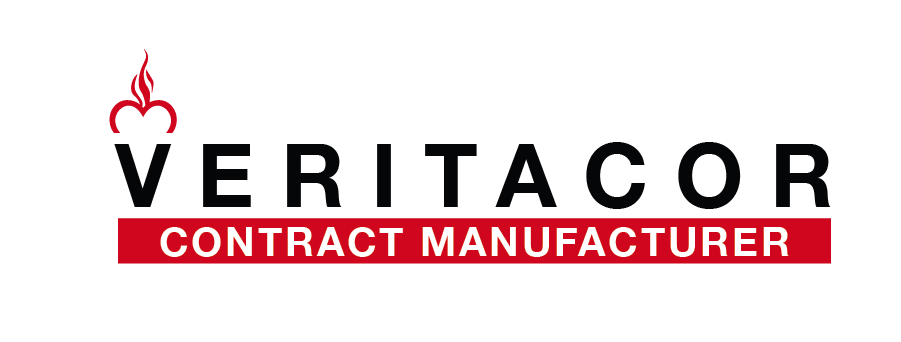
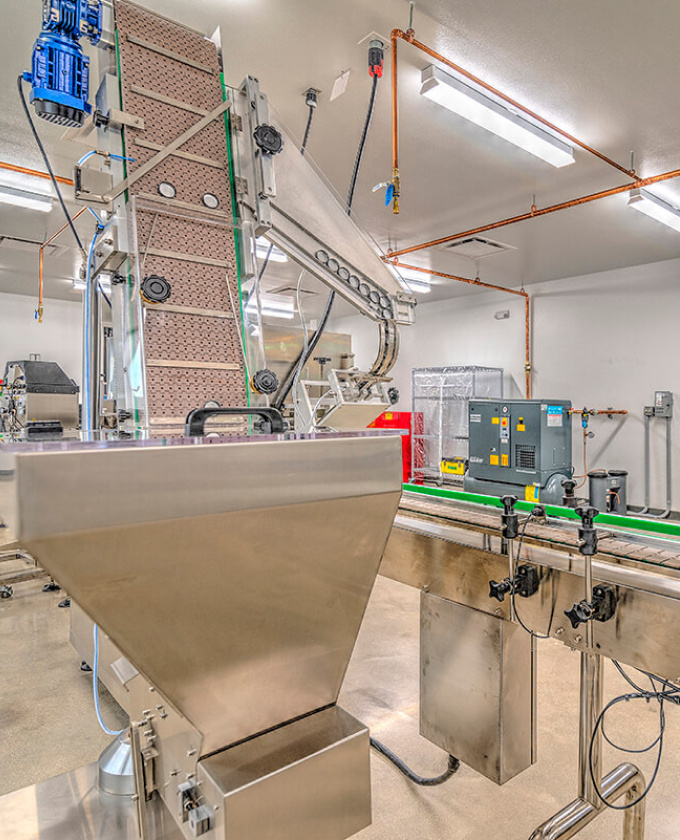
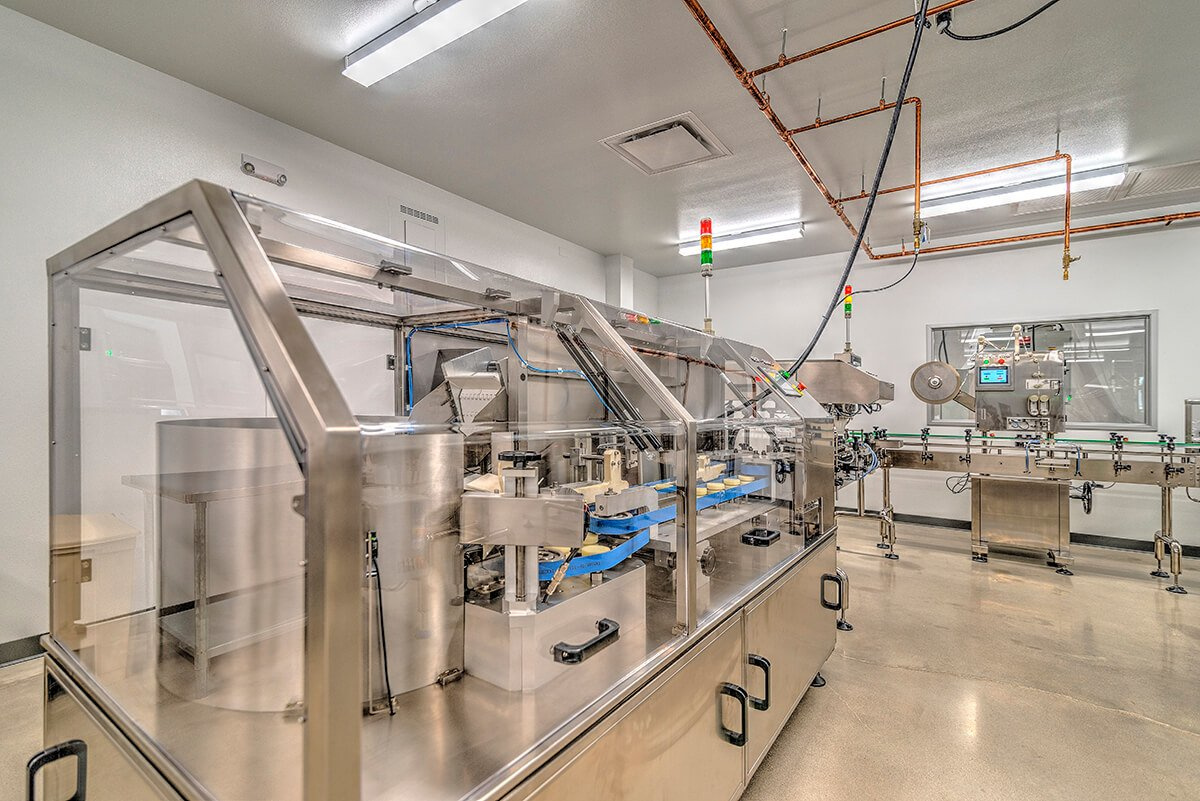
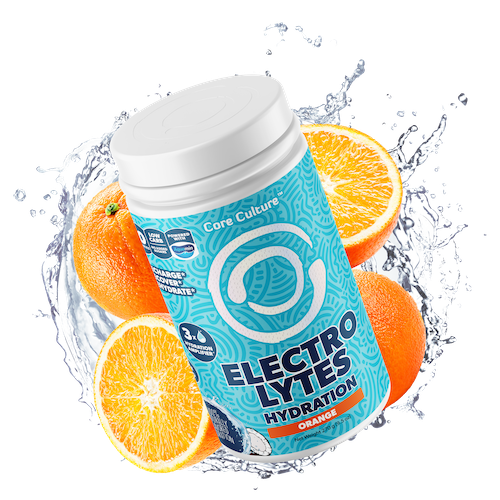

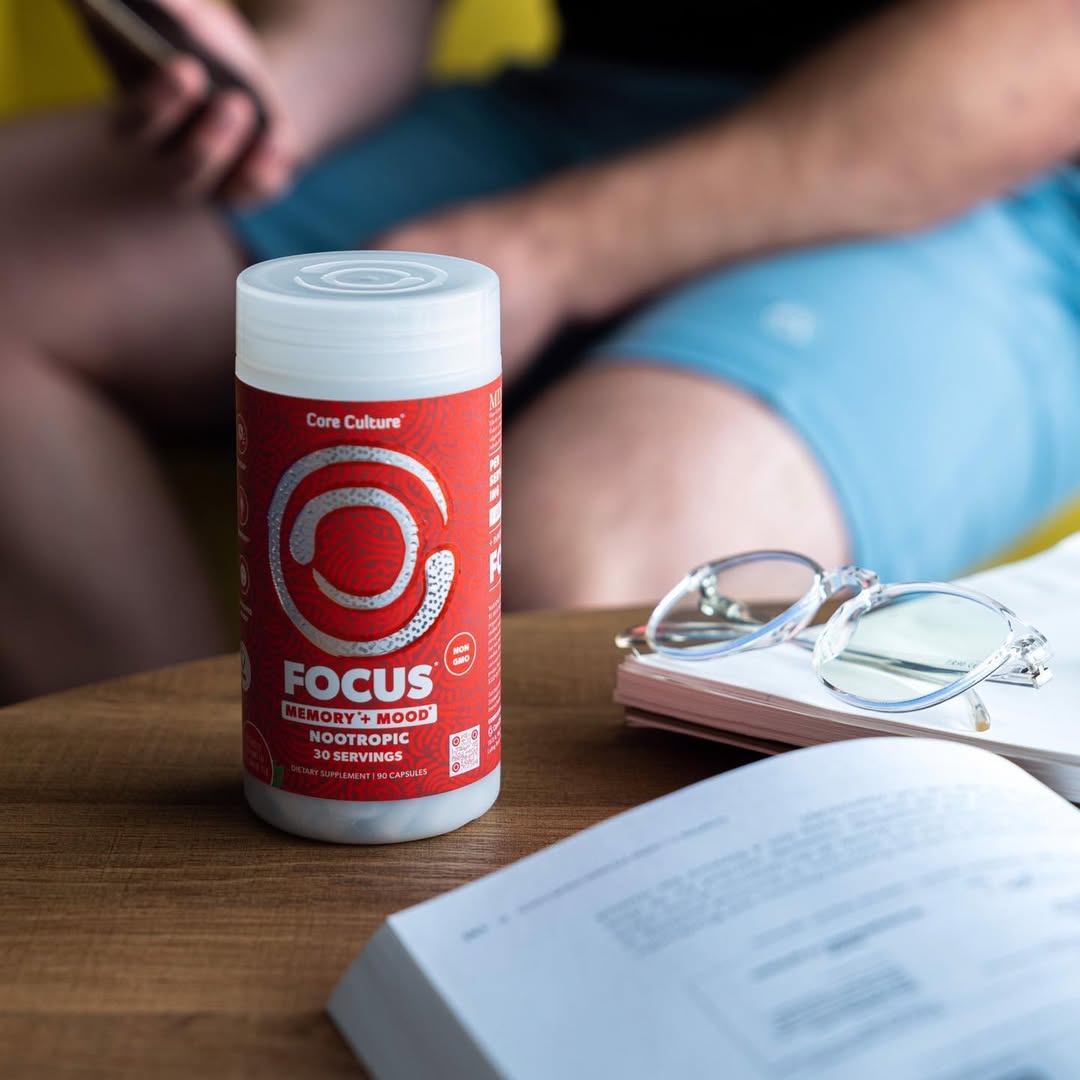
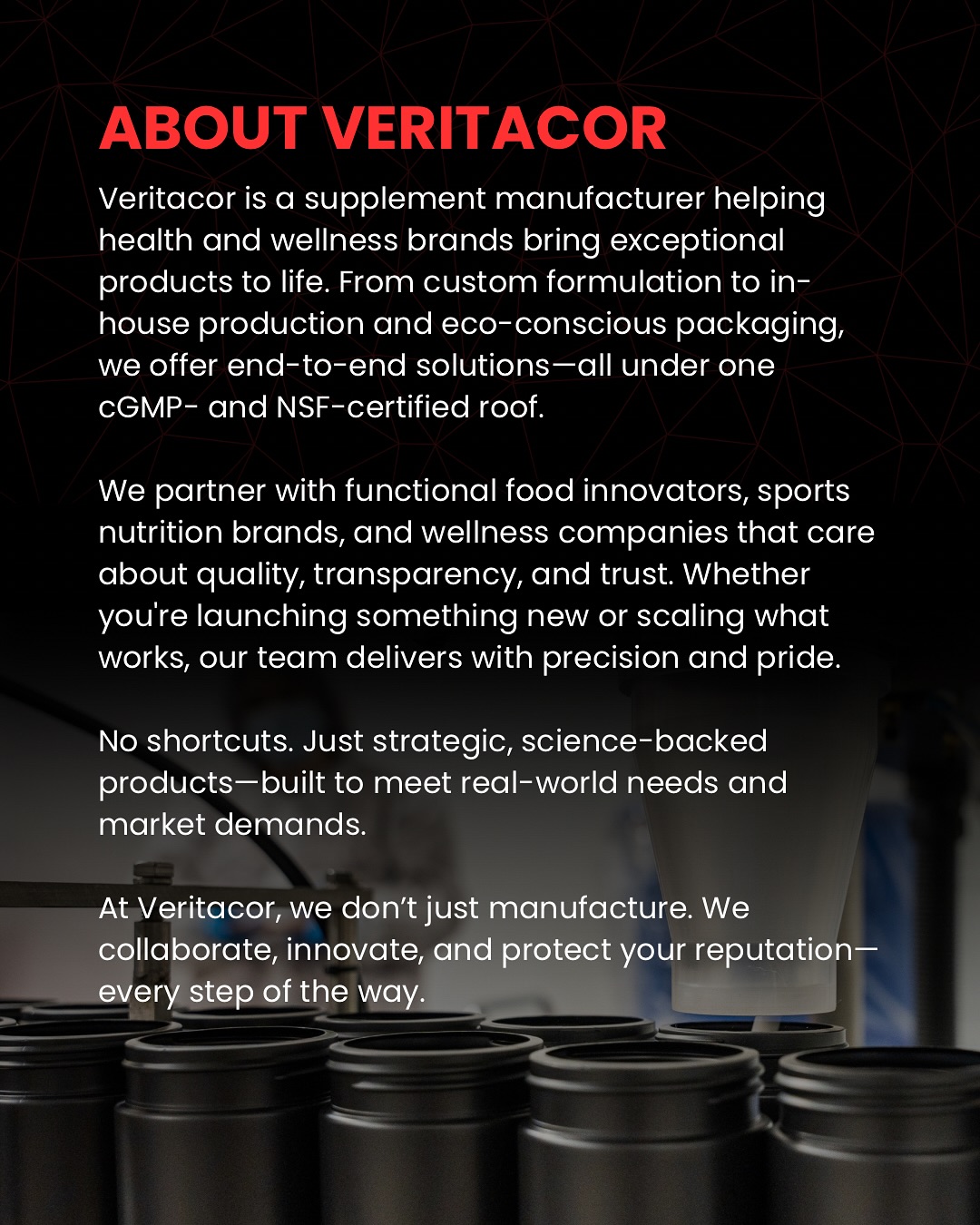
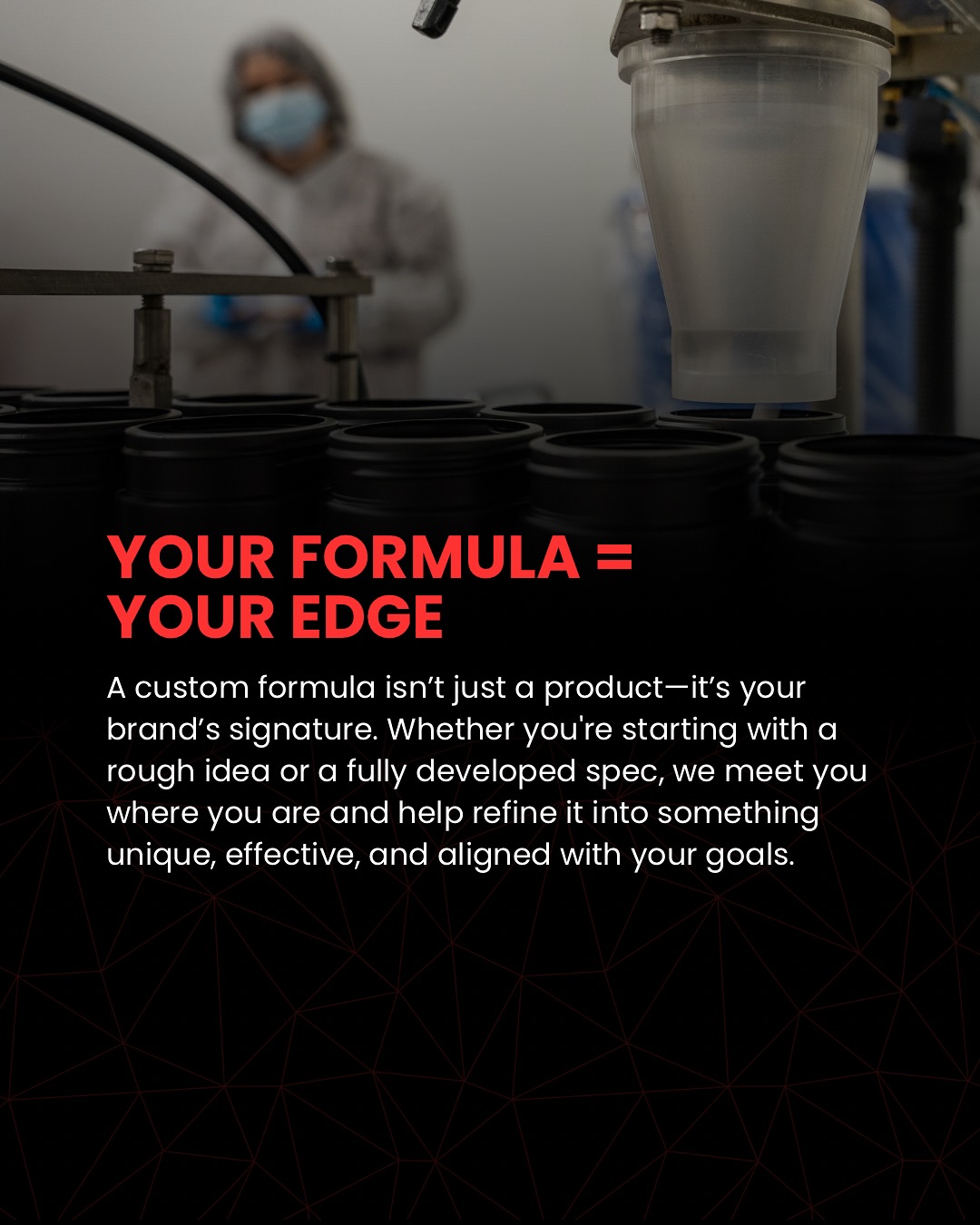
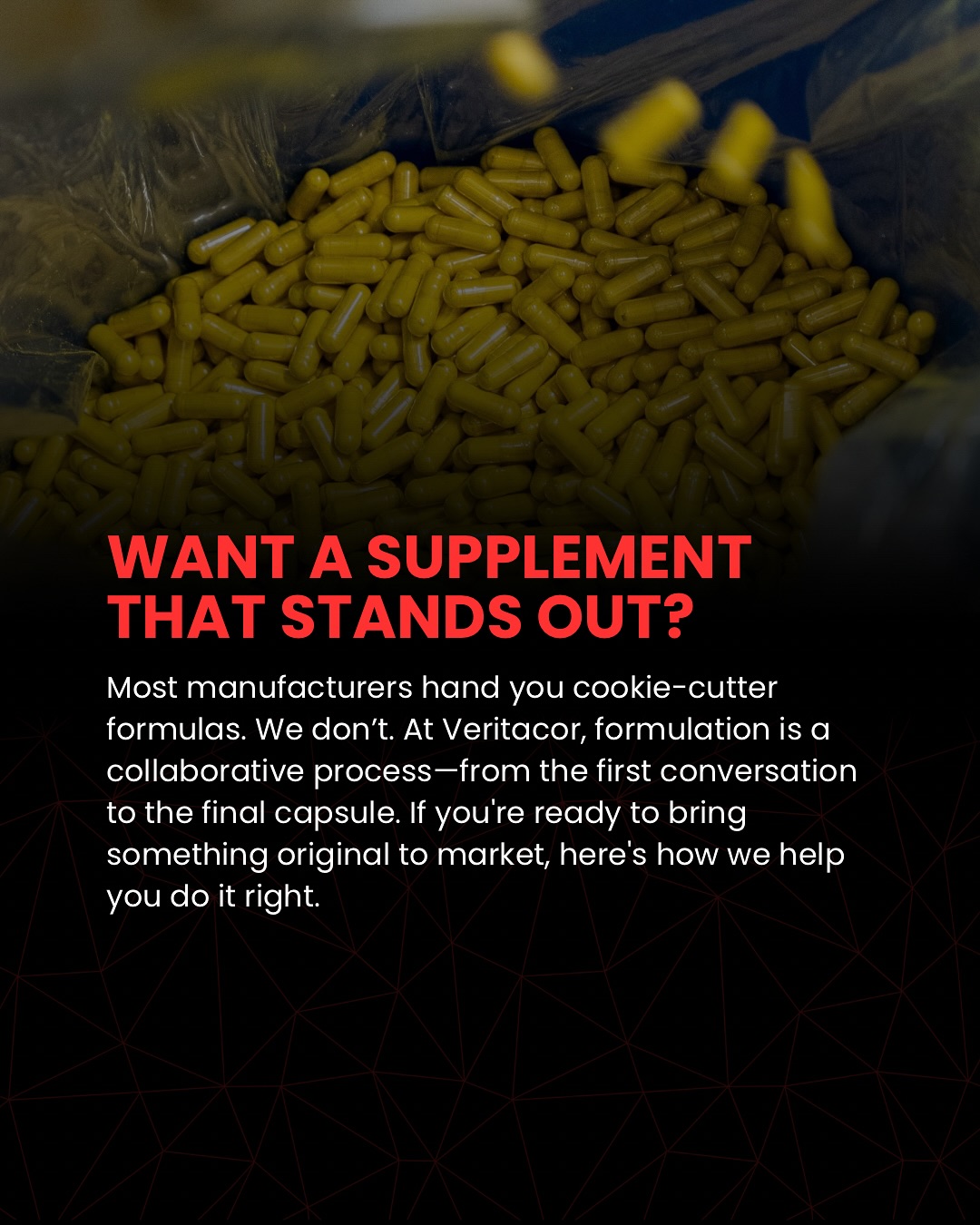
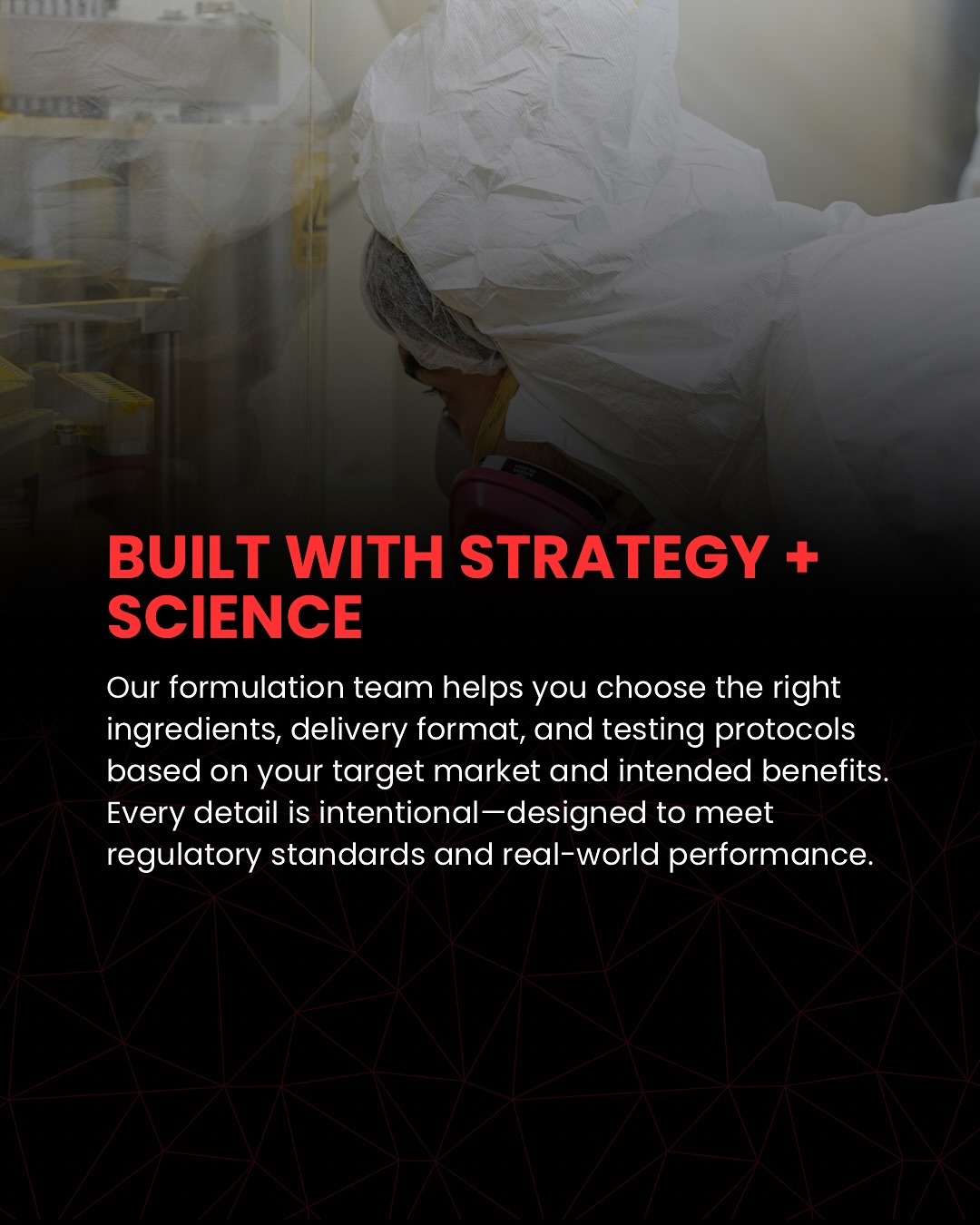
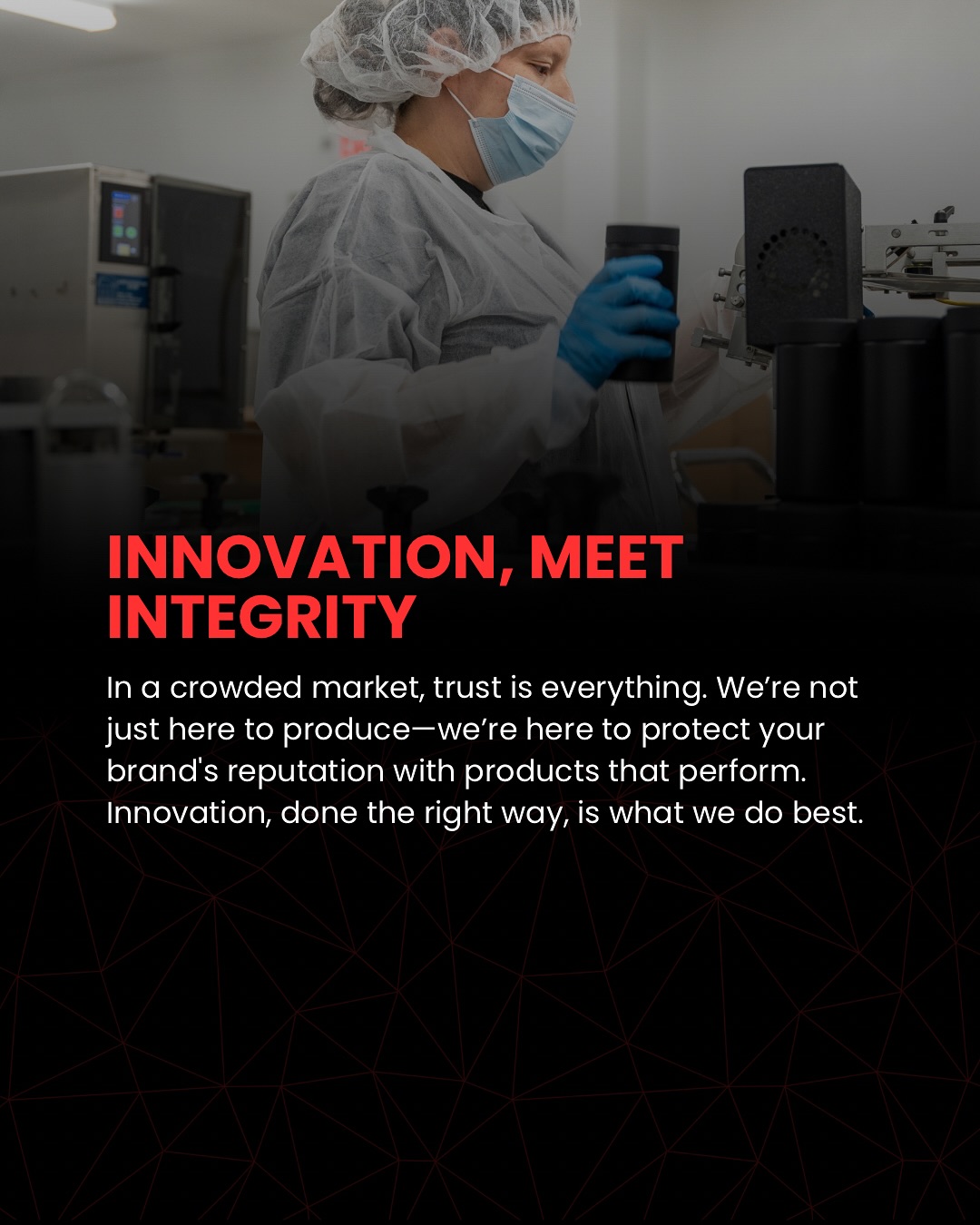
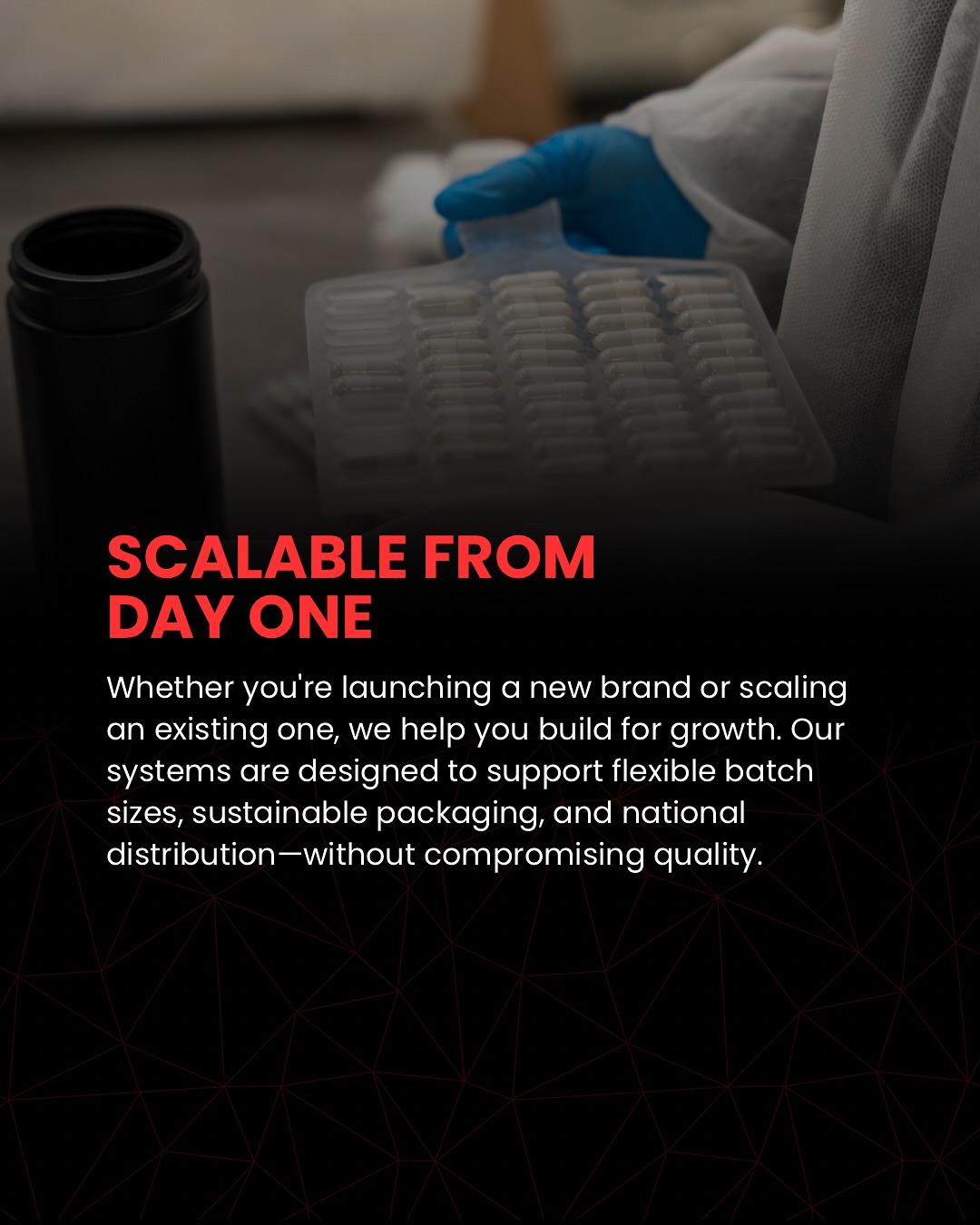
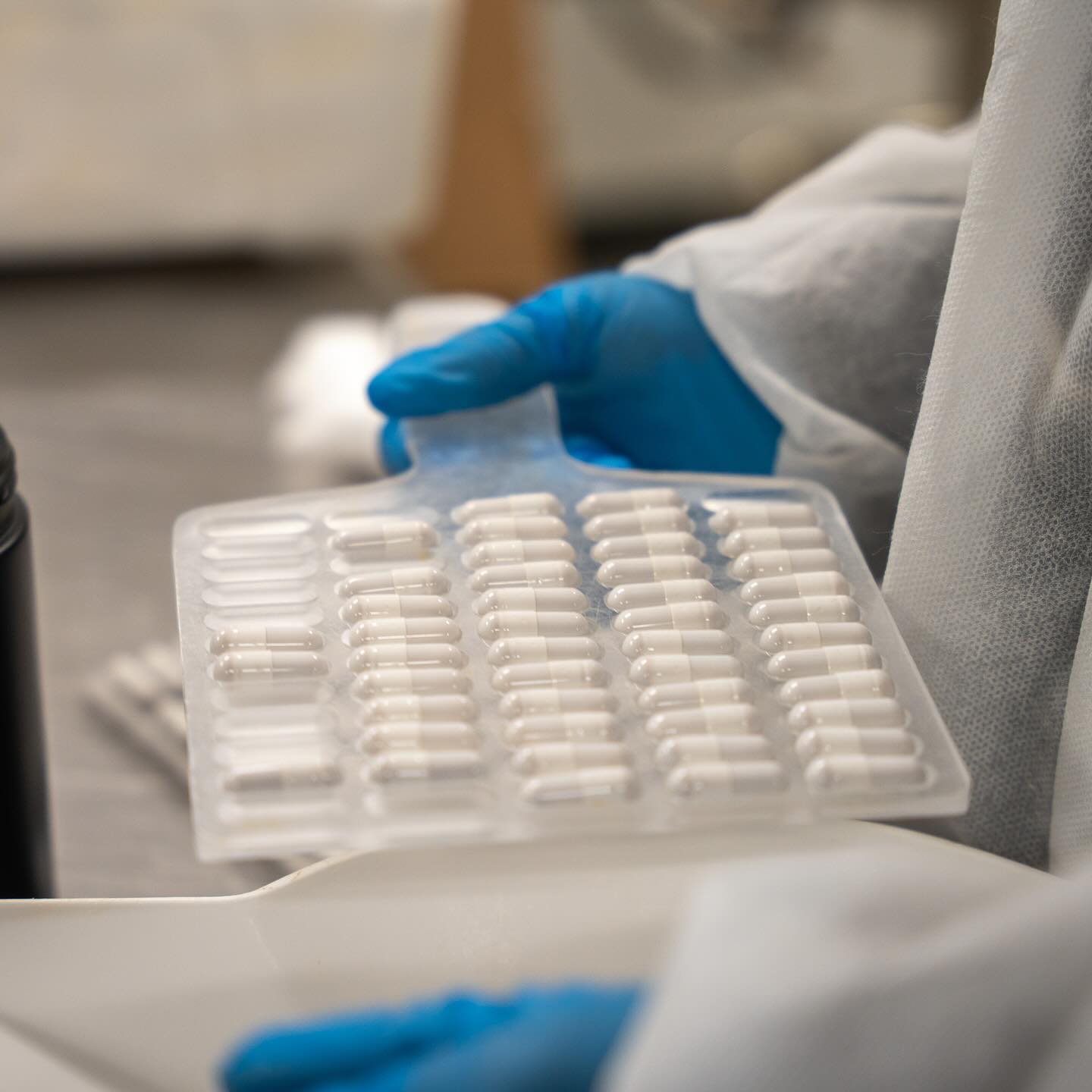
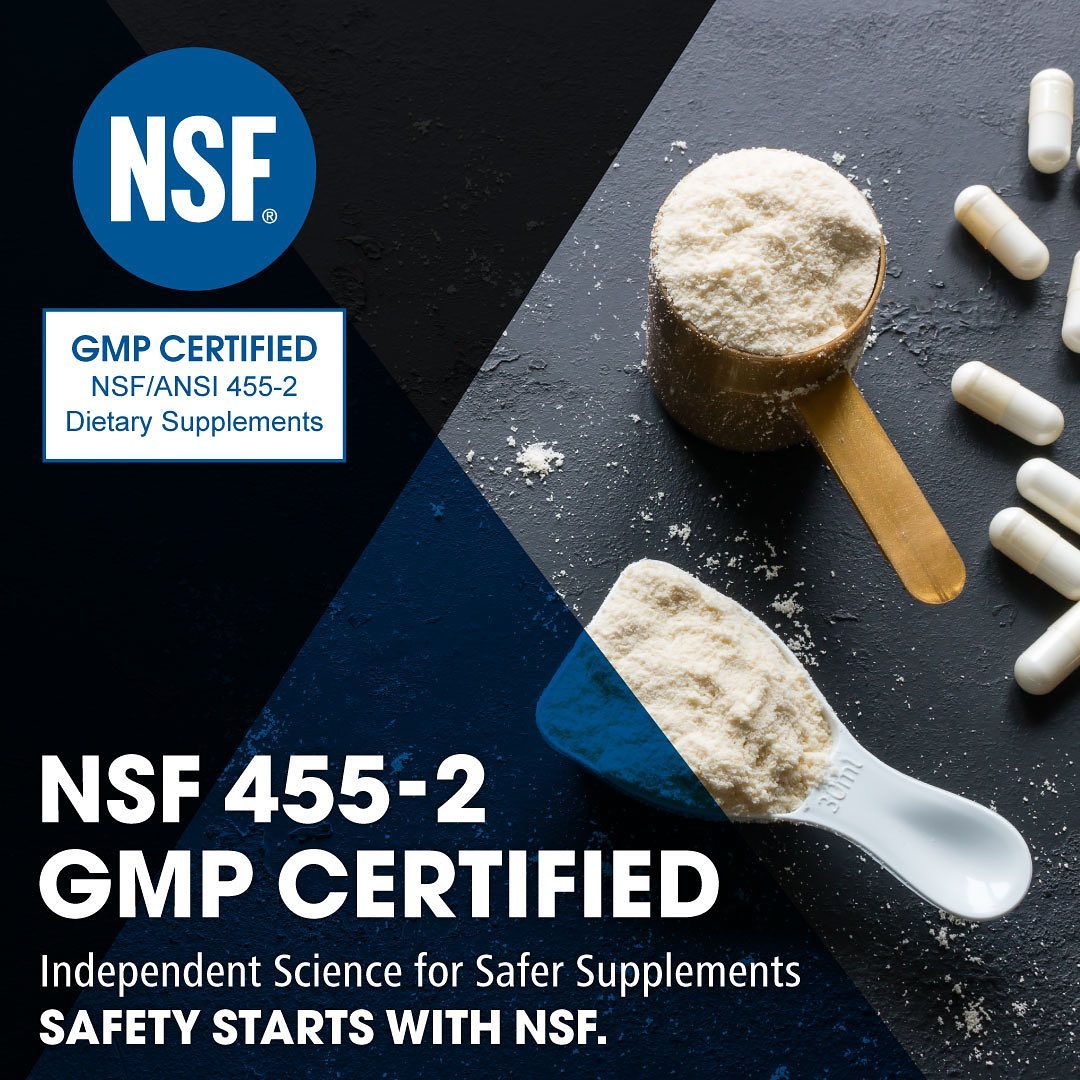
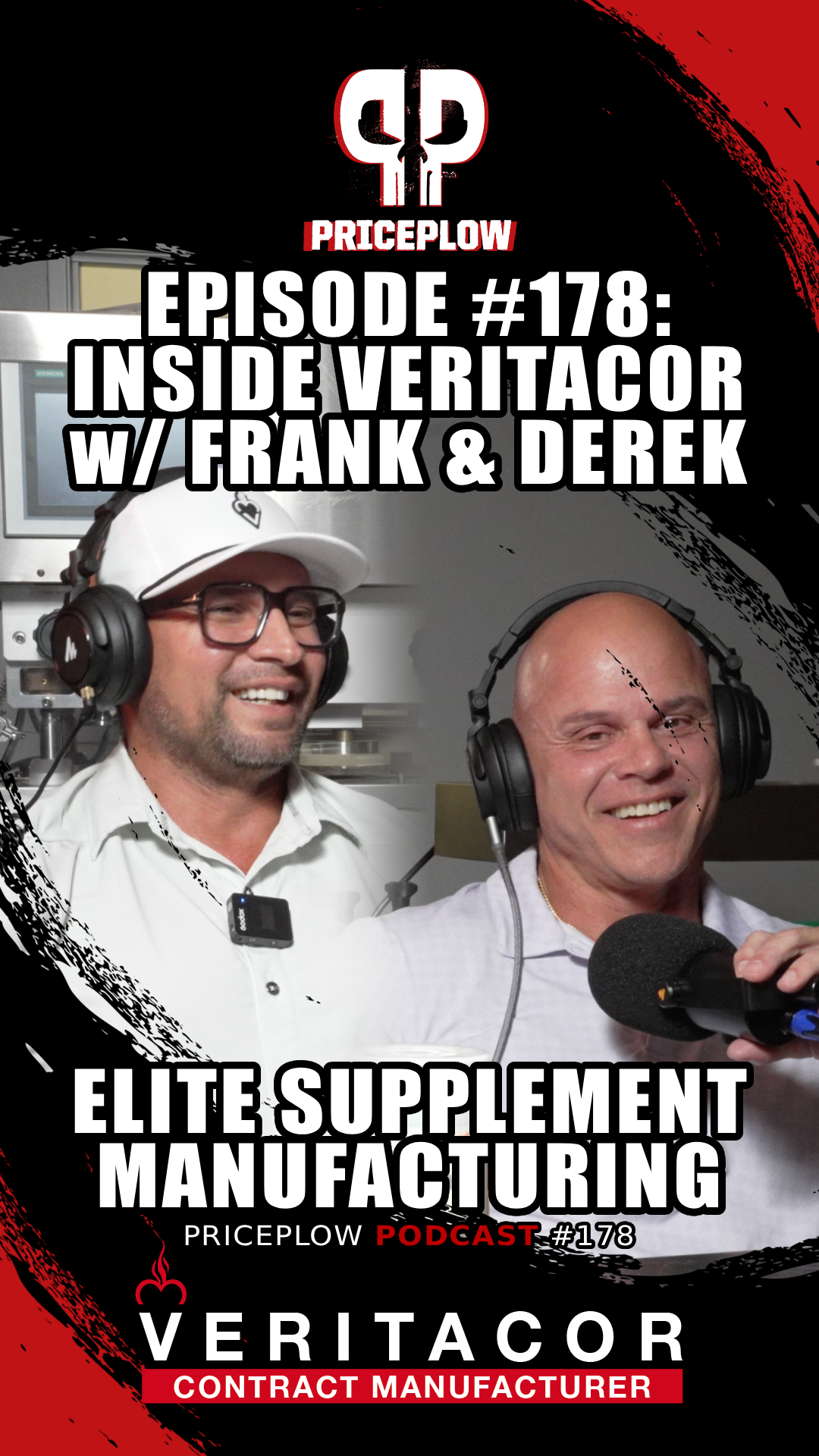


Comments and Discussion (Powered by the PricePlow Forum)